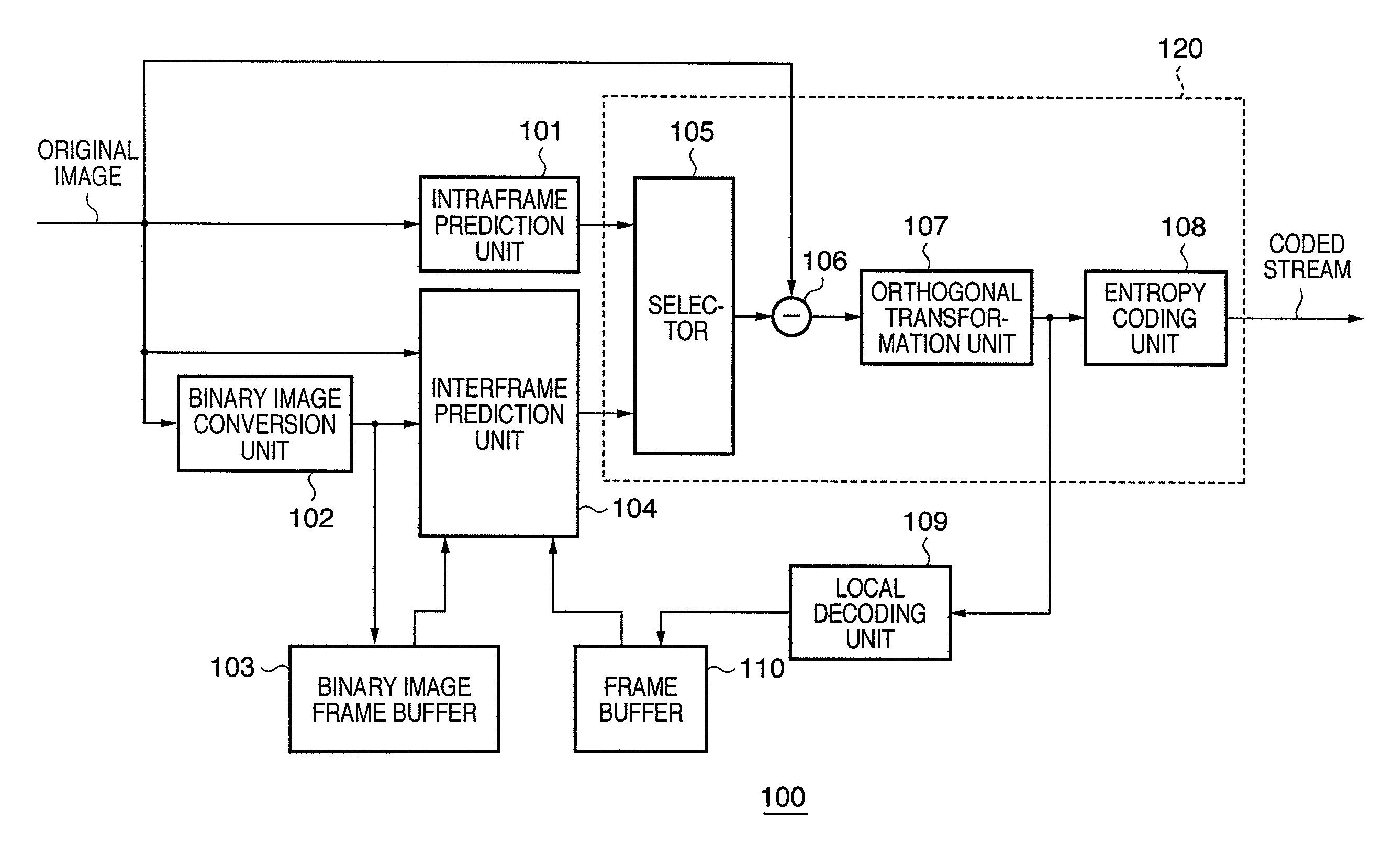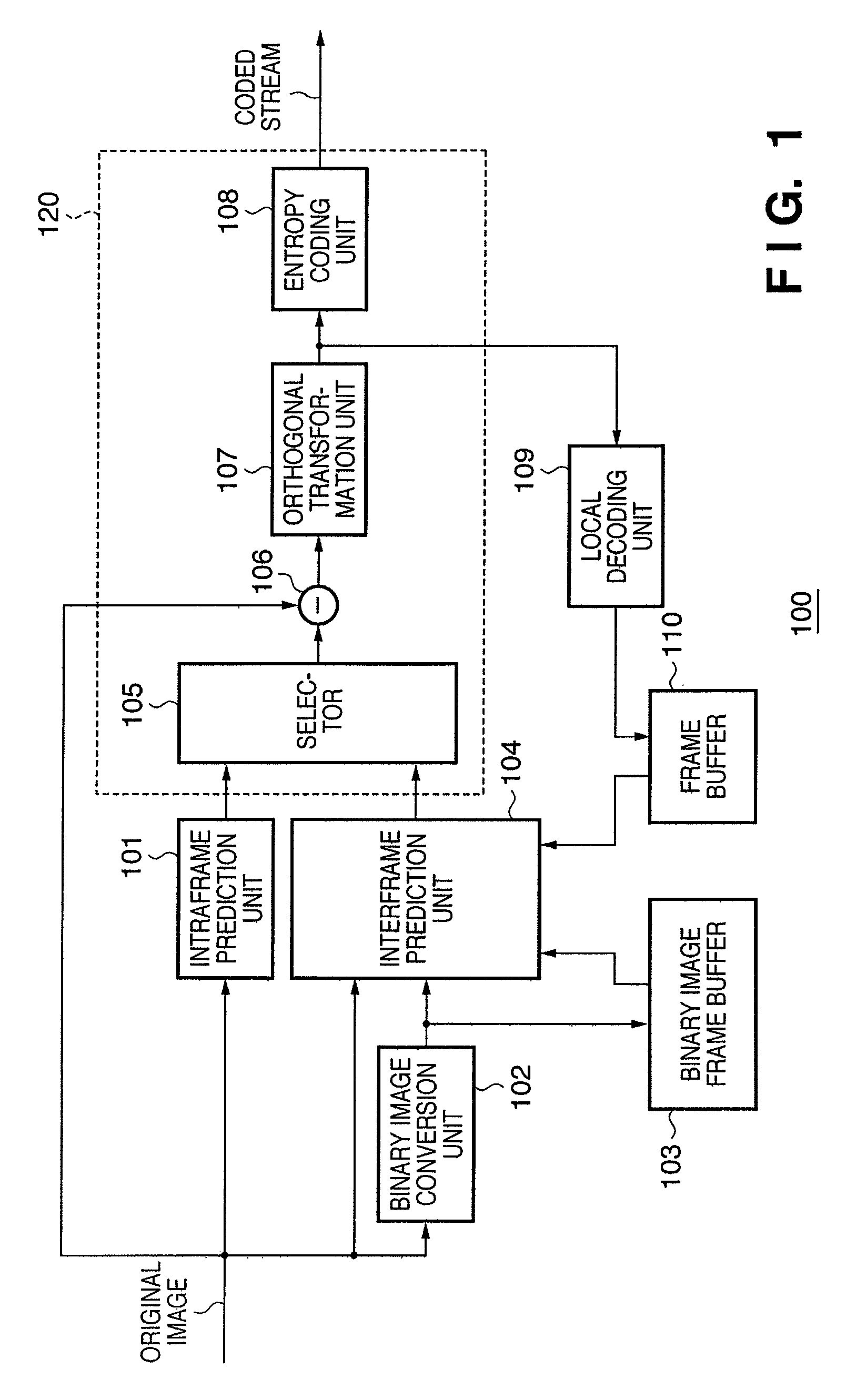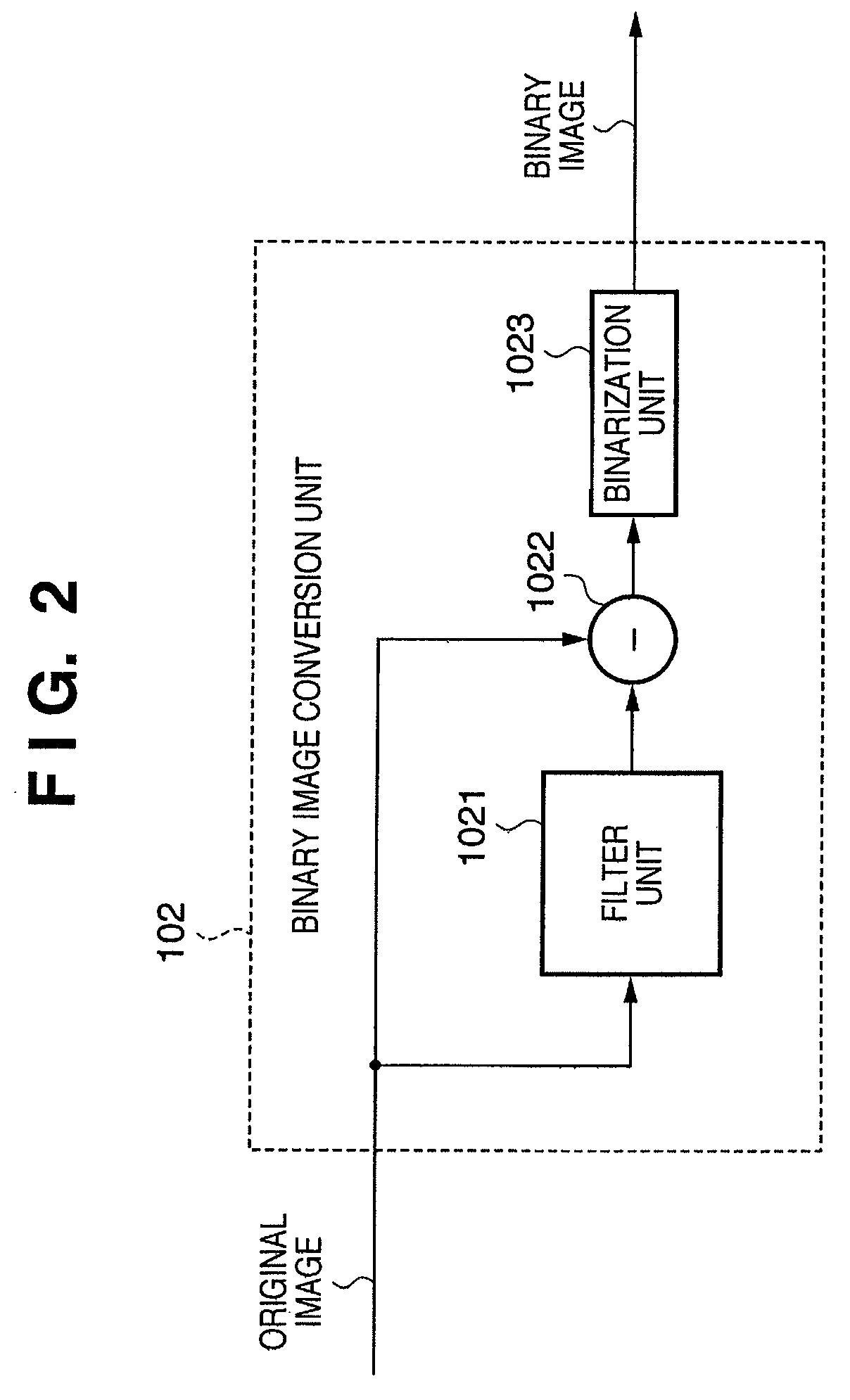Image coding apparatus and image coding method
a technology of image coding and coding method, which is applied in the field of image coding technology, can solve the problems of increasing the scale and cost of the circuitry, affecting the correct operation of the image coding apparatus as a whole, and undesirable countermeasures, so as to reduce the volume of data transfer
- Summary
- Abstract
- Description
- Claims
- Application Information
AI Technical Summary
Benefits of technology
Problems solved by technology
Method used
Image
Examples
second embodiment
[0110]As a second embodiment of the present invention, the input of the binary image frame buffer 103 shown in FIG. 1 may be changed to a local decoding binary image and the same effect as in the first embodiment still obtained. A binary processing unit is provided and the output of the local decoding unit 109 is binarized and input to the binary image frame buffer 103. Although this embodiment requires a binary processing unit, it does make it possible to achieve coding having higher prediction-coding accuracy by using the locally decoded image.
Other Embodiments
[0111]In the embodiments described above, a description is given of a configuration that detects the first motion vector using a binary image. However, as can be easily understood by those of skill in the art, it is also possible to achieve the same effect by extracting the high-frequency components of the original image and using an image having an arbitrary number of gradations of reduced gradation number. Therefore, the b...
PUM
 Login to View More
Login to View More Abstract
Description
Claims
Application Information
 Login to View More
Login to View More - R&D
- Intellectual Property
- Life Sciences
- Materials
- Tech Scout
- Unparalleled Data Quality
- Higher Quality Content
- 60% Fewer Hallucinations
Browse by: Latest US Patents, China's latest patents, Technical Efficacy Thesaurus, Application Domain, Technology Topic, Popular Technical Reports.
© 2025 PatSnap. All rights reserved.Legal|Privacy policy|Modern Slavery Act Transparency Statement|Sitemap|About US| Contact US: help@patsnap.com



